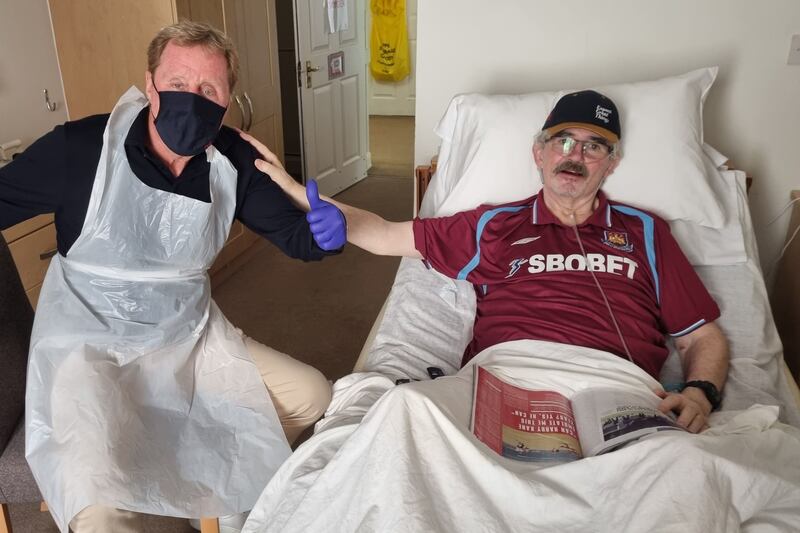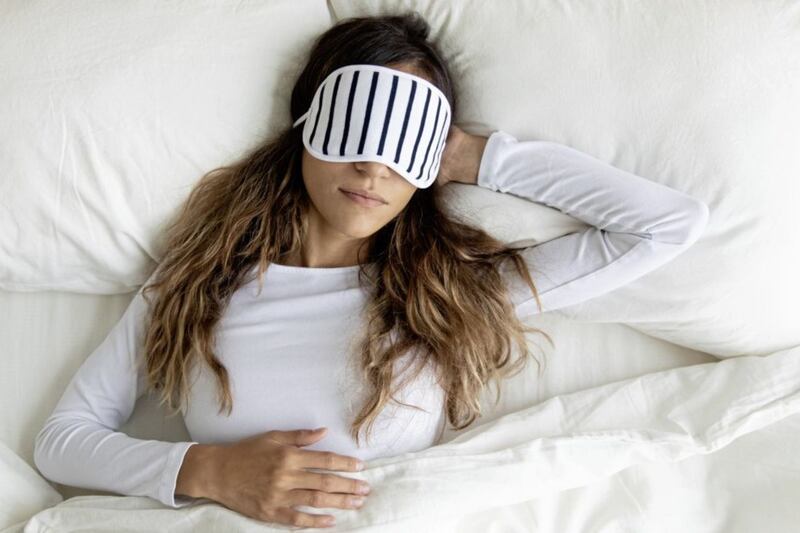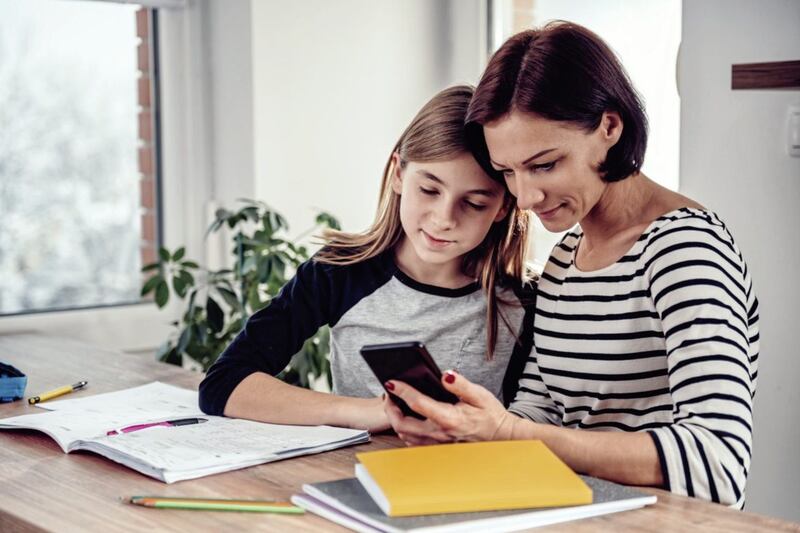There’s a lot of new territory to navigate in the pre-teen and teenage years for both youngsters and parents – and musician and presenter Myleene Klass is the first to admit she doesn’t always “get it right”.
The Loose Women regular, who has two teenage daughters, Ava, who has just turned 17, and Hero, 14, says: “I try and keep the lines of communication open. And I’m the first to say I don’t get it right every time, I’m not perfect.
“One of the things I say to my children is that I am figuring it out with you,” adds Klass, 46. “Which must be really frustrating, but I think that honesty already gives you a nice footing together.
“And I suppose it’s the idea of – don’t say come and speak to me and then lose your rag the second they do! ‘I told you not to do that, we’ve been through this before’, and so forth. Don’t be the walking contradiction!”
Awareness around children’s mental wellbeing is greater than ever. But for parents, knowing how to broach the issue isn’t always easy. In fact, 80% of parents worry their children stay silent rather than opening up to them about their mental health and worries, according to new research from Bupa. And almost two-fifths (39%) of the 3,004 parents surveyed said they worry about their child’s mental health at least once a week.
Despite wanting to support them, one in eight (13%) admitted they’re worried about broaching these topics for fear of getting it wrong and pushing their kids further away.
Klass has teamed up with Bupa on their new ‘break through and be heard’ campaign, which aims to provide parents with a range of free online resources and guides.
A video created to launch the campaign shows parents and children attempting to talk to one another, while each standing inside separate bubbles – illustrating the disconnect parents can sometimes feel during the pre-teen and teen years. As Klass puts it, sometimes you’re trying to have the important conversations, but it’s almost like you’re speaking two “different languages”.
Bupa worked with mental health platform JAAQ (Just Ask a Question) to produce a series of interactive videos, which include Klass talking about her own experiences, as well as experts on topics such as anxiety, eating disorders and depression. The Q&A formats mean parents can dip in and out of specific parts of the videos for quick information and guidance.
“It’s so essential that we are having these conversations right now,” says Klass, who also has a five-year-old son, Apollo, with fiancé Simon Motson (her daughters are from her former marriage to Graham Quinn). “And we all say, where is the village, that village that’s going to help us? Well, here it is.”

For the broadcaster, who has authored a number of books on parenting and family life, including 2022’s They Don’t Teach This At School, it’s important to remember it’s not about trying to remove any ounce of upset from our children’s lives.
“A life lived without any pushback or any friction or any tension is just impossible,” says Klass. “You know, the traffic lights turn red and you don’t get to work on time, the school homework isn’t handed in, friendship groups change – there are so many things and unexpected dilemmas thrown at you daily. It is impossible to create a stress-free space all of the time, as we all know.
“But it is essential to create a space where conversations can be had, and I think a lot of us don’t know how to create that space,” she adds.
“It’s not just about having a sit down, face-to-face conversation – it can just be a conversation in the car. In one video I was talking through where I have the best conversations with my children, and it’s actually when the discussion feels secondary, so you’re driving along, looking out the window, there’s enough distraction and the conversation just flows.
“It’s about little tips like that. And when that uncomfortable conversation comes up, what do you do with it? My job as a broadcaster is to naturally fill silences, but I’ve had to really learn to just listen, to let the uncomfortable hang in the air sometimes. It’s really important to hear what our children are telling us.
“Then it’s about guiding your child to be able to navigate what they’re experiencing, because what we experienced was how many decades ago?!”
Also, most of today’s parents didn’t have these conversations modelled to them by their own mums and dads.
“We never had that modelled for us. We were raised by ‘boomers’ [the generation born between the end of World War Two and the mid 1960s], who were like, ‘my way or the highway’,” says Klass. “We were just told to get on with it, and finish everything on your plate – and it’s not an attack on boomers by the way – we were never really taught to listen to our bodies.
“I really pride myself now when my son says, ‘My body says I’m full now’ [when he’s eating], because it is about listening to ourselves, to be able to channel that.”
One thing Klass does try to model for her kids is not constantly beating herself up when life’s inevitable mishaps happen.
“I model the mistake or the mishap, or how I think it would help them to react to something. So, if I break a cup, [I’ll go] ‘Oops – Oh, mama, that was an accident, don’t worry, we’ll clear it up, nobody got hurt’. Rather than, ‘Oh, I’m an idiot, how could I be so stupid?’ and suddenly taking myself down and my anger up to 100.
“My daughters laugh at me when I do this. But they had a friend who came for dinner recently, and the friend said, ‘Oh I’m so stupid’, and both my daughters said, ‘No – you can’t say that in front of my mum!’”
Myleene Klass has teamed up with Bupa, who have created a free guide and interactive videos to help parents open up mental health conversations with their children. Visit Bupa.co.uk








